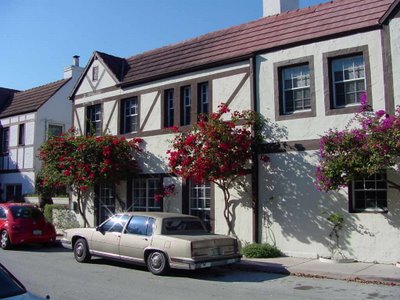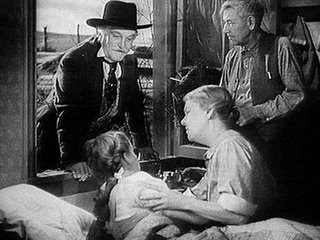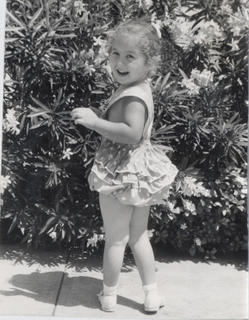Tuesday, October 31, 2006
There's No Place Like Home


I posted the following for a while; then I took it off. I don't know why...But here it is, back, today, because Halloween has been an important part of my life during the forty-six years that I've lived in this country. It was my first holiday here, which I celebrated within forty-eight hours of our arrival. And then I saw The Wizard of Oz; that first time, on someone's black and white TV in someone's apartment or house in El Exilio, or at the Sevilla Hotel--who knows? All I know is that, on this day full of magic, mystery--and illusion--all that you're about to read is...true. Happy Halloween!
DESTINATION STOPS: FROM OZ TO THE FIVE POINTS, AND BEYOND
BY GEORGINA MARRERO
Halloween has been my favorite holiday for the past forty-four years. On the second day of my arrival in the United States, my mother put a mask on my six-year-old face, handed me a paper sack, and sent me out trick or treating with the children of other recently arrived Cuban exiles. Returning back to the Sevilla Hotel in Coral Gables that evening, I’m sure I gorged myself silly, totally oblivious to the true meaning behind the witches and ghosts my companions and I had just impersonated.
Without realizing it, I had just participated in one of the typical American child’s rites of passage. In 1960, another event also served to mark the holiday: the viewing of The Wizard of Oz. So it came to be that I entered the Land of Oz for the very first time, in its black-and-white splendor.
Year after year, I returned. I may not have understood a word of the movie that first time, but Judy Garland’s mellifluous voice, the roar of the tornado, the Munchkins’ falsettos, Glinda’s soothing tones, and The Wicked Witch of the West’s cackle were not lost on me. For years I was terrified at the mere thought of her.
By the mid-sixties, I watched Oz for the first time in living color. My command of English was finally good enough to grasp the meaning behind The Scarecrow’s innate intelligence, The Tin Man’s heartfelt wishes, The Cowardly Lion’s brusque—yet gentle—valor, and The Wizard’s good intentions masked behind his ingenuous deceit. Appearances can, indeed, be deceiving.
Dorothy Gale remained my heroine. Brave, intrepid, fiercely optimistic in the face of opposition and insurmountable obstacles, there were times, however, that she almost succumbed. And that was when her friends stepped in. And she, in turn, helped them. I knew my geography by then: Kansas must be an interesting place.
The late sixties found our family in central Georgia. For the first time since our arrival in the States, I had what I would term true American neighbors. A family with four children lived in a big rambling house next door. It was a noisy household, full of fun and laughter. I was always visiting them, being invited to participate in some game or the other. A quiet, but caring, music teacher lived on the other side of our duplex. As a sizeable Cuban community surrounded us, I still remember that I regarded my American friends as “exotic.”
My father had made a very good American friend during our initial years in Miami. This man had lent us money so that we could have a better standard of living during some very lean times. They became colleagues, and then remained friends, for the rest of my father’s life.
My mother kept telling me how we used to visit this man’s home, how we all used to clasp hands around the table and say grace before a meal, and how everyone both admired and feared his formidable mother. Even I remember his mother. Of sturdy Tennessee stock, she had done a good job with her pipe smoking, bowtie clad, vintage Rolls-Royce loving son.
Summers in the sixties found me at a camp for girls in the North Georgia Mountains. To my knowledge, I was the only Cuban there. I learned all about crafts, camping, and camaraderie around a campfire. I even learned to square dance. Sneaking out to meet young men from the nearby boys’ camp may not have been part of my game plan, but I understood that it was a long-standing tradition.
Back in Florida, I finished my high school education at a school established in the 1930’s for the children of winter residents in South Florida: a school built from the ground up. Its founder’s prairie upbringing had borne a good fruit.
College. Even if circumstances had not brought us to the States, chances are I would have found my way to New York. And—as fate would have it—I met someone with a profound interest in American history who was in the midst of turning his avocation into his vocation.
Even his college dormitory room was painted in the colors of the American flag. A nineteenth-century specialist, he had a consuming interest in New York City, including its architecture. I began to learn all I could ever possibly hope to learn about the different types of cast iron buildings, about dumbbell tenements, about the spread of diseases in lower Manhattan during the middle of the nineteenth century, and about Tammany politics.
This bold, enterprising New Yorker had even begun to organize bus tours of New York alongside his professor. He etched and engraved facades of buildings for his Studio class. Not uncommonly, he used to give me private tours of the Five Points and beyond after dim sum lunches with his family.
We hung out for a number of years. His undergraduate research eventually led to his doctoral dissertation. Returning to the City a number of years later, we explored the bowels of the Bowery Savings Bank, and perused the 1855 Census. It was a special treat for this Cuban to not have to worry about getting lost, because an American knew his way around.
Eventually, though, I was on my own. Working—and living—in between two languages and two cultures at different points in my life, I found myself back in Florida. Traveling abroad alone for the first time since my teenaged years, my interests led me to explore the concentric circles of friends and colleagues that surrounded one of the most famous students of American character. Margaret Mead.
Brave, intrepid, fiercely optimistic in the face of opposition and insurmountable obstacles. Wait. I said these words about someone else. Dorothy Gale. Not usurped, but, perhaps, supplanted, now, by Margaret Mead.
Her boldness, her enterprising nature, her strength of spirit was—is—shared by so many, I found out. From Auntie Em, to Dorothy, to D-Day veterans, to the families of 9/11 victims.
Her optimism. Brought home, so recently, by President Reagan’s passing.
Her courage. Brought home, back in 1960, by the uprooting of a family, in a father's and mother’s desire for freedom for their child.
The Wicked Witch’s cackle may still send shudders up and down my spine, but Glinda draws me toward the light.
Copyright, 2004 by Georgina Marrero All Rights Reserved
